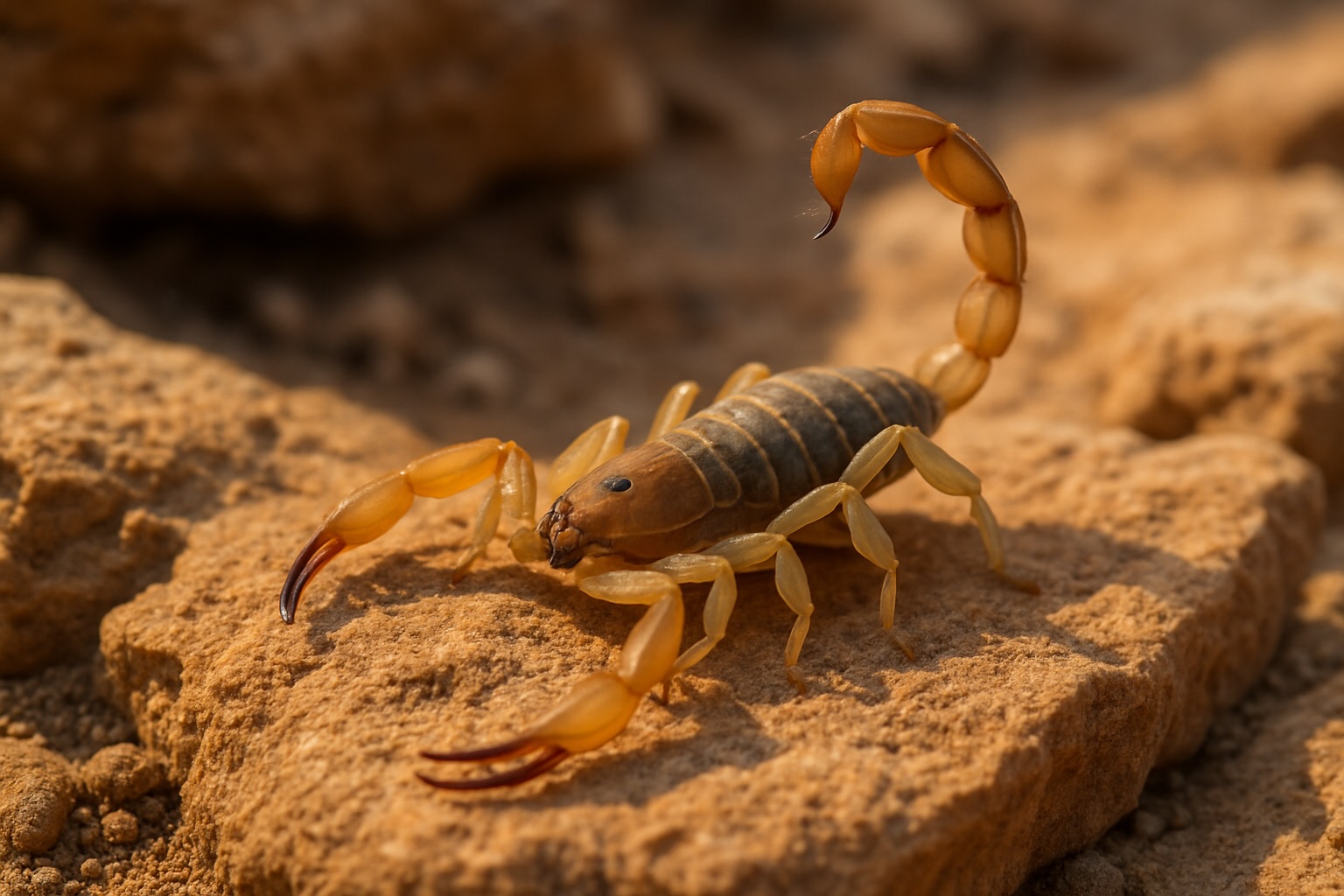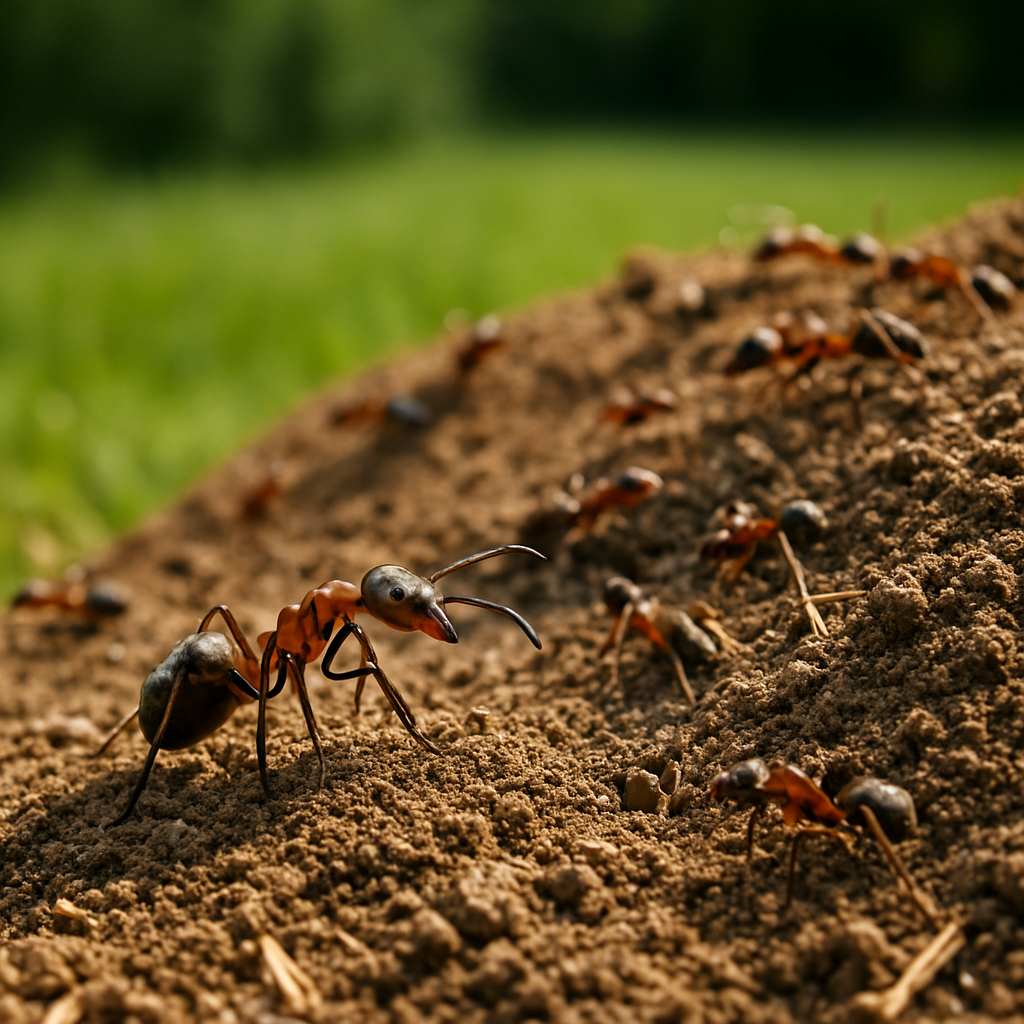Spring in Gilbert, AZ, signals the start of scorpion season. As nighttime temperatures warm, these desert dwellers become more active around homes and yards. While most scorpion stings are not life-threatening, they can cause significant pain and allergic reactions—especially from the Arizona bark scorpion, the most venomous species in the United States.
This guide offers natural and effective strategies for controlling scorpions in your Gilbert yard, helping protect your family, pets, and peace of mind.

Understanding Scorpions in Gilbert
Gilbert’s hot, dry climate creates ideal conditions for scorpions. The most common species homeowners encounter include:
- Arizona Bark Scorpion: Small, yellowish-tan, and highly venomous.
- Striped Tail Scorpion: Larger and often confused with the bark scorpion but generally less dangerous.
- Giant Desert Hairy Scorpion: The largest species in the U.S., less venomous but intimidating.
Scorpions prefer cool, dark, and moist hiding places. At night, they hunt insects and spiders, drawn to light sources and water features.
Natural Ways to Prevent Scorpions in Your Yard
1. Declutter Your Outdoor Spaces
Scorpions love hiding under debris. Regularly:
- Remove leaf piles, firewood, and unused landscaping materials.
- Trim back shrubs and trees touching your home or block walls.
- Keep outdoor furniture, toys, and garden equipment elevated or neatly stored.
2. Seal Entry Points into Your Home
Scorpions can squeeze through cracks smaller than a credit card. Focus on:
- Caulking gaps around windows, doors, pipes, and utility lines.
- Installing weather stripping and door sweeps.
- Repairing torn screens and sealing vents.
3. Target Their Prey
Controlling insects like crickets, ants, and spiders will reduce the scorpion food supply.
- Practice regular pest management around your home’s perimeter.
- Use yellow “bug lights” outdoors—they attract fewer insects at night.
- Consider organic pest control methods if you prefer chemical-free options.
4. Modify Your Landscaping
Create an uninviting environment:
- Opt for open gravel beds instead of dense ground covers.
- Space plants to reduce shade and moisture retention.
- Install moisture-reducing irrigation systems like drip lines (Learn more about efficient drip irrigation).
Advanced Scorpion Prevention Techniques
1. Install Scorpion Barriers
- Attach mesh screens (with holes smaller than 1/16-inch) around fences and vents.
- Create a “scorpion moat” using sticky glue traps around key entry points.
2. Use Black Lights for Night Inspections
Scorpions glow under UV light. Conduct nighttime sweeps to identify hiding spots and remove them promptly.
3. Professional Pest Control
If sightings are frequent or concerning, consult local pest control professionals specializing in scorpion management. Look for eco-friendly companies that minimize pesticide use while effectively targeting scorpions.
Child and Pet Safety Tips
- Shake out shoes, towels, and clothing left outside.
- Check bedding and cribs positioned near exterior walls.
- Ensure outdoor play areas are clear of hiding spots.
- Educate older children about nighttime awareness during peak scorpion months (April–October).
When to Worry About a Sting
Most scorpion stings result in localized pain, swelling, and numbness. However, seek immediate medical attention if:
- A child, elderly person, or someone with a known allergy is stung.
- Symptoms include difficulty breathing, muscle twitching, or convulsions.
- Multiple stings occur simultaneously.
Local Resources for Scorpion Management
FAQs: Controlling Scorpions in Gilbert Yards
Q: What’s the most effective natural repellent for scorpions?
While no natural method guarantees 100% control, cedar oil and diatomaceous earth sprinkled around foundations can deter them.
Q: How often should I inspect my property?
Weekly inspections during warm months help catch infestations early.
Q: Are scorpion home invaders mostly male or female?
Both sexes wander in search of food or mates, but females carrying young are particularly active during spring.
Final Thoughts
Protecting your Gilbert home from scorpions requires a multi-pronged approach: reducing their hiding places, cutting off their food supply, sealing entry points, and staying vigilant during peak activity months.
Small efforts now can save you from painful encounters later!





